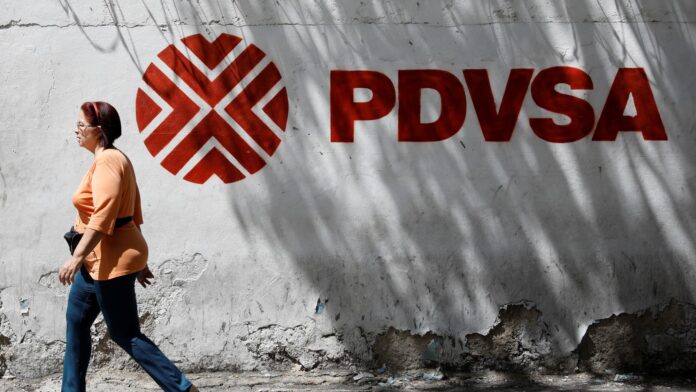Shutting down PDVSA is not betraying the homeland; it’s liberating it to build the energy hub of the Americas
For decades, we repeated a mantra: PDVSA is the homeland, PDVSA is us all. It was the great national company, a symbol of modernity and sovereignty. But that company, once part of the elite group of the world’s five most efficient oil companies, no longer exists. What remains today is a bankrupt shell, riddled with corruption, turned into a political spoils with no technical or financial capacity.
Clinging to the illusion of “saving PDVSA” is a mirage. There is no engineering possible that can resurrect a corpse that has been decomposing for two decades. The challenge is not to save the company but to save the nation from its ruin.
The shattered myth
The nationalization of 1975 created a narrative of identity: the “company of all Venezuelans.” But that myth shattered with three successive strikes:
- The politicization of management—red, very red—and the purge of nearly 20,000 (50%) workers in 2003.
- The transformation of PDVSA into a petty cash for the Executive through bonds and future sales, along with the plundering of tens of billions of dollars.
- The operational collapse: the lack of investment and maintenance has led to the current situation where the company has inoperative refineries, production at historic lows, and an unpayable debt.
Today, PDVSA is not a national asset: it is an obstacle to recovery.
A new institutional scheme
Shutting down PDVSA does not mean privatizing the subsurface. The Constitution will still declare reservoirs as property of the Republic. What changes is how they are exploited.
Ministry of Hydrocarbons: will be the political and strategic brain. It designs energy and fiscal policy, represents the country in international organizations, guarantees the transition to alternative energy, and maintains ownership of the deposits on behalf of the Republic.
Venezuelan Hydrocarbons Agency (AVH): will be the technical arbitrator. It manages contractual areas, tenders projects, regulates, supervises operations, guarantees transparency in bidding and contracts, and safeguards the technical information of the subsurface.
Private operators: both national and foreign, will be responsible for exploring, producing, refining, transporting, storing, and marketing. They assume risks and investments (capital and technology) and pay royalties, taxes, and contributions to the State.
The result: a regulatory and revenue-generating State, not a business owner.
The advantages of shutting down PDVSA
Institutional clarity: the State stops being judge and party. It focuses on planning, regulating, and supervising.
Confidence for capital: foreign and national investment flows more easily when there’s no need to associate with a bankrupt, politicized state enterprise.
Fiscal discipline: income is channeled directly to the Treasury, without parallel cash flows or diversions.
Transparency: oil revenue enters visible public accounts, instead of dissolving in opaque structures.
The risks of closure and the start of a new cycle
Eliminating PDVSA won’t be easy. There will be cultural and political resistances: for many, it still represents “the homeland.” The fate of tens of thousands of workers must be addressed with transition plans, retraining, and labor justice. There will also be a need to define what to do with strategic assets like refineries and Citgo.
But the biggest risk isn’t in shutting down PDVSA; it’s in prolonging its agony. Continuing to waste time and resources on a chimera that no longer exists condemns the country to paralysis.
Closing PDVSA wouldn’t be the end of the Venezuelan oil industry, but its rebirth. It would mean acknowledging that the state company has completed its historical cycle, and that it’s up to new institutions and operators to take on the task. It’d be a gesture of honesty toward the country and the world. An act of letting go: abandoning nostalgia to save the future.
A historical crossroads
The debate is not technical: it’s historical. Oil is no longer eternal. The world is moving toward an energy transition, and Venezuela has just a decade, maybe two, to monetize its reserves. If we do not take advantage of this window, we will end up with a subsurface full of crude oil left undeveloped.
Closing PDVSA would be an act of realism. It would recognize that what was once a national pride is now a burden for the nation. It would be a bet on a new oil pact, where the State is not an operator, but a guarantor of transparency and justice.
Replanting oil, once again
Nearly a century ago, Arturo Uslar Pietri wrote that Venezuela must “plant oil.” Today, this is more urgent. Planting oil doesn’t mean saving PDVSA. It means using the last oil revenues to sustain basic government functions—protection of rights, security, and justice. It means making the most of the last big revenue before the world shuts the era of crude.
Conclusion
The Venezuela that lies ahead cannot continue living off dead myths. A new Hydrocarbons Law must reflect a paradigm shift: opening space for the private sector, giving AVH the role of technical arbitrator, and redefining the ministry as a political compass.
The next step is inevitable: closing PDVSA.
It won’t be easy. There will be tears and resistances. But clinging to this idol of clay is more dangerous than toppling it. True sovereignty is not defended by bankrupt state companies but by strong institutions and free citizens.
The question is not whether we can rescue PDVSA. The question is whether we have the courage to close it to make way for the energy hub of the 21st century Americas.
@antdelacruz_
Executive Director of Inter América Trends
